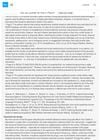
Reviewers suggested the study on finding new drug uses through social media side-effects needs better methods and clearer limitations.

The peer review highlighted the need for clearer data handling, questioned the study's validity, and recognized improvements from the original version.

New insights into cell communication in psoriasis suggest innovative drug treatments.
 475 citations,
January 2016 in “International Review of Psychiatry”
475 citations,
January 2016 in “International Review of Psychiatry” The document concludes that non-binary individuals need compassionate support and recognition in healthcare, without being pathologized.
 10 citations,
January 2018 in “Seminars in Reproductive Medicine”
10 citations,
January 2018 in “Seminars in Reproductive Medicine” The document concludes that women with PCOS need a comprehensive care model that covers reproductive, metabolic, and psychological health to improve their quality of life.
 September 2023 in “Scientific reports”
September 2023 in “Scientific reports” Segmental hair analysis can track testosterone over time but needs adjustments for sex, hair color, and washing frequency.
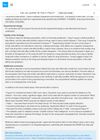
Reviewers criticized the study for its assumptions, social media data collection issues, and lack of comparison to existing methods.
 3 citations,
March 2019 in “Children's Geographies”
3 citations,
March 2019 in “Children's Geographies” Getting ethical approval for research with children is important but can be complex and time-consuming, sometimes leading to the exclusion of certain age groups.
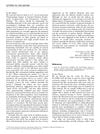
research Re
September 2003 in “Dermatologic Surgery” The letter criticizes generalizations about older patients' abilities and calls for respectful, individualized care, while the original authors defend the need to adapt communication for those with impairments.
 August 2023 in “Bioengineering”
August 2023 in “Bioengineering” Bioprinting could greatly improve health outcomes but faces challenges like material choice and ensuring long-term survival of printed tissues.
 29 citations,
September 2020 in “International Journal of Molecular Sciences”
29 citations,
September 2020 in “International Journal of Molecular Sciences” The document concludes that freeze-dried platelet-rich plasma shows promise for medical use but requires standardization and further research.

The study improved and was accepted despite initial concerns about data clarity, methodology, and potential overfitting.
 4 citations,
November 2016 in “Pediatric Clinics of North America”
4 citations,
November 2016 in “Pediatric Clinics of North America” The document explains the difficulty in diagnosing and treating brain diseases caused by the immune system and stresses the need for quick and accurate tests.
9 citations,
February 2013 in “Dermatologic clinics” Some new treatments for children's skin conditions are effective, but risks must be weighed.
 1 citations,
September 2023 in “Stem cell research & therapy”
1 citations,
September 2023 in “Stem cell research & therapy” Mesenchymal stem cells could help treat aging-related diseases better than current methods.
 1 citations,
June 2023 in “Curēus”
1 citations,
June 2023 in “Curēus” PCOS affects nearly 25% of female medical and dental students, impacting their academic and social lives.
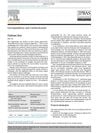 January 2017 in “Journal of Plastic Reconstructive and Aesthetic Surgery”
January 2017 in “Journal of Plastic Reconstructive and Aesthetic Surgery” The authors suggest using scalp hair follicles for beard reconstruction to improve results and reduce surgery time and patient discomfort.
54 citations,
April 2011 in “Journal of Multidisciplinary Healthcare” SLE patients often face depression and anxiety due to physical changes, with African-American and Hispanic patients having higher unmet psychological needs.
 September 2023 in “Curēus”
September 2023 in “Curēus” Reproductive hormones play a crucial role in breast cancer development and treatment challenges.
 September 2003 in “Journal of the Royal Society of Medicine”
September 2003 in “Journal of the Royal Society of Medicine” Understanding breast cancer requires considering both medical advancements and social influences.
 9 citations,
March 2011 in “Current Pharmaceutical Biotechnology”
9 citations,
March 2011 in “Current Pharmaceutical Biotechnology” Stem cell therapies show promise for treating various diseases but face challenges in clinical use and require better monitoring techniques.
 12 citations,
January 2019 in “Regenerative Medicine”
12 citations,
January 2019 in “Regenerative Medicine” The document suggests a need for collaboration, better evidence, and a responsible framework to safely and effectively advance regenerative therapies to clinical use.
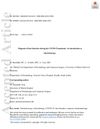 6 citations,
October 2020 in “Journal of the European Academy of Dermatology and Venereology”
6 citations,
October 2020 in “Journal of the European Academy of Dermatology and Venereology” Teletrichoscopy is a promising method for diagnosing hair disorders remotely during the COVID-19 pandemic.

Reviewers criticized the study's methods and suggested focusing on drug mechanisms instead of repositioning due to social media data quality concerns.
 1 citations,
February 2024 in “Philosophy, ethics, and humanities in medicine”
1 citations,
February 2024 in “Philosophy, ethics, and humanities in medicine” Aesthetic medicine needs clear ethical guidelines to ensure patient well-being and safety.
 19 citations,
October 1996 in “Dermatologic Clinics”
19 citations,
October 1996 in “Dermatologic Clinics” Dermal papilla cells are key for hair growth and could help us understand and treat hair loss.
 2 citations,
January 2017 in “Journal of Pigmentary Disorders”
2 citations,
January 2017 in “Journal of Pigmentary Disorders” Genetics, stress, and health issues can cause early hair greying, which affects self-esteem, and there's no cure, only hair dye.
 May 2023 in “Frontiers in Cell and Developmental Biology”
May 2023 in “Frontiers in Cell and Developmental Biology” The document concludes that using stem cells to regenerate hair follicles could be a promising treatment for hair loss, but there are still challenges to overcome before it can be used clinically.
 March 2022 in “Women's health issues”
March 2022 in “Women's health issues” The conclusion is that women are heavily affected by autoimmune skin diseases, face significant challenges, and need better research, treatments, and healthcare policies.
 7 citations,
July 2019 in “International archives of internal medicine”
7 citations,
July 2019 in “International archives of internal medicine” Common skin conditions can greatly affect a person's mental health and social life.




























